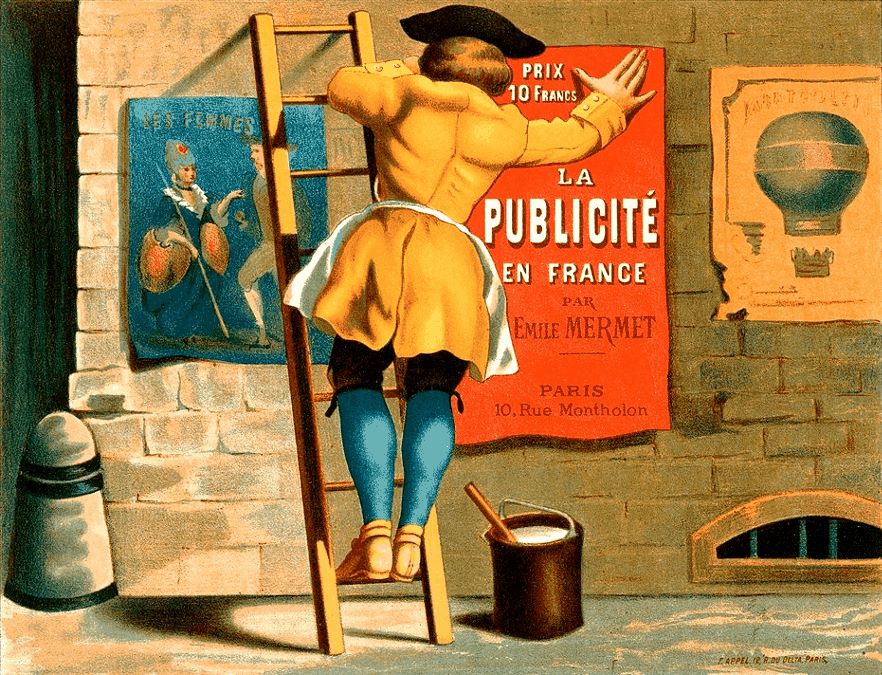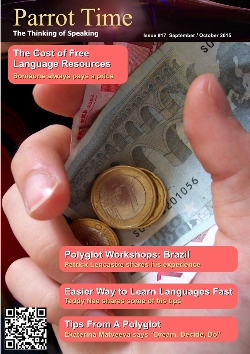The Cost of Free Language Resources

|
Rise and Fall  Linda, working on a free course for people Let us look at some examples. Say a woman, we will call her "Linda", decides to use her knowledge of Norwegian to create very comprehensive course for it, covering every aspect of the language. She then gives it away to anyone that wants it. Now, let us say Linda is a student, and can only work on these courses in her spare time, which as any student knows, there is little of. It is also harder for her to do other languages, because she does not have the same level of knowledge as she does with Norwegian. As a result, it takes a long time for work to progress, while there are many people eagerly waiting for her next free resource. They try to be patient, but invariably they start asking when it will be done. Some will be polite but others will be demanding. After all, she said she would create more courses, so she owes it to them now. Even while Linda has every intention of creating the stuff, she feels pressured and guilty and begins to regret ever making the original course. Her own life and happiness is now being hurt by people wanting her free stuff, and her motivation to do the work vanishes.  Linda, spending even more time and effort, none of which is free Perhaps instead of being a student, she is employed fulltime. The same problem occurs. Since her job provides her with the money she needs to survive, it is her priority, while creating free courses, no matter how much she might love doing it, is not. The same resentment and regret builds up, and she no longer wants to be doing it. When people take it for granted that others will produce something for free, they often start developing the attitude that the person now owes it to them. We go from seeing something as a favour to it being something we are entitled to, and we get upset if we then do not get it. Continuing with our example, let us say that Linda is neither a student nor employed. That would give her plenty of time to build these free courses, and so naturally, no resentment, right? Well, she will eventually feel the pressure of not creating enough courses or making them fast enough, because there will always be people wanting more from her. Even if there are hundreds of people who thank her and say there is no rush, all it takes is the one person that is impatient to make Linda feel bad. So, realizing she needs help, Linda reaches out to those around her, probably the friends in the language community she has met online. She asks them to work with her on creating the resources. Most are likely to reject her plea outright, claiming they do not know the languages well enough, or they do not have the time. Some will be more honest, explaining they do not do that kind of work for free, and since she is not making money herself from these, she cannot pay others. A few might say they will help, and Linda will feel relieved for a while. They might even form a group and start trying to produce more of these materials. It is a bold endeavour, and one done out of love of languages and the desire to help others.  A group of people working on creating materials Sadly, the same issues will always return. No matter how much they enjoy doing it, they still need to live in the real world which requires money. So, they start thinking they should charge at least a little for what they create. A few people who have gotten the materials from them have even suggested they do so, claiming "I would pay money for these!". So "Linda's Language Resources" is born, and a complete website is built with all the courses they offer now being listed, with prices. They have found a way to take what they love doing and turning it into something the can keep doing. At that point, they have become the vilified "commercial company", and people will be angry at them for expecting payment. Some will pay and encourage others to do so, but in the end, most will turn away from Linda, saying she "sold out" and is "greedy". Despite all the help she provided and the love she had for doing it, Linda has now become a bad person in the eyes of the others. Her group disbands and she stops creating, her enthusiasm crushed when she sees how quickly her fans turn on her. Paid Content  Money is always an issue, whether you have it or not Some free websites have another way of covering the costs of operating. For the users who are willing to pay some reoccurring fee, like a few dollars every month, they get access to other parts of the website. These might include more advances lessons, more languages, or specialized learning tools. Memrise offered all of its resources for free until a few years ago. Then it started offering a "premium" level available to people who paid $10 a month (or $60 for a year). This would give users access to, among other things, better tools for tracking their progress. As you can imagine, that started discussions all over on whether or not it was worth paying for. Some people felt that even if they did not use the extra services, they would be willing to join, just to help Memrise with their expenses. Others explained that they did not need those extras and so would not be paying for the upgrade. Some people got angry at Memrise for offering anything that had to be paid for. After all, it should all be free, right? Some even went on to complain about Memrise in order to justify why they would not be paying. They talked about the quality of the courses not always being the best (they are member made), there were features they did not like as well as features they wanted but were not available, and basically just saying that Memrise was not good enough to pay for. These are also likely to be the same ones that will not buy a language resource by claiming there are plenty of free resources which are "just as good". Advertising  Advertising has been around for centuries, and still people complain There is an alternative to charging people for a product or access. A person might place advertising for other products on their site, and these advertisements either give them a small amount of money when a visitor clicks on them or a bit more money if a viewer buys the product. Perhaps Linda steps back and decides that instead of selling the courses, she can put advertising on her site, so people who come to the site can help by clicking on ads. Then they do not have to spend any money and Linda can still make at least some money off what she does. However, this just gets more people angry, because now they she is shoving advertising in their face, upsetting their browsing pleasure. At least some are upset. The rest have ad blockers, so they never see the ads and therefore can never help Linda. Even though this is a common step to take now, many people are still completely opposed to any kind of advertising, saying it cheapens the experience, even if the ads are related to language products they might actually like. After all, the stuff on the site is free, so why should they be subjected to anything asking for money. And the Point?  All of these materials cost money to make and buy, so why cheat others? The point of outlining all of this and giving examples is to make you, the learner, aware of the hidden problems from insisting on only getting resources which are free. When you do this, you are actually contributing to the decline of those resources, as well as failing to help other language lovers who are trying to help you. While you might think that people who ask money for the work they do and the things they create, think about how you would feel if people wanted you to work for free. These people are usually not greedy but rather just trying to survive doing what they and you both enjoy. I am certainly not advocating that people stop using free resources or feel bad about doing so. I love free resources and have personally spent over fifteen years building them for others. But when we use those, we need to remember that they came at a cost to someone else in some form, be it time, effort, money, or all three. If someone asks for some kind of compensation for their work, whether it is helping with some of the work, sharing and promoting it, clicking on ads, or paying a small fee for it, we should all be making an effort to be supportive. After all, these people are working to help you. |
| The Cost of Free Language Resources | ||||
| Writer: | Erik Zidowecki | |||
| Images: | ||||
| ||||
All images are Copyright - CC BY-SA (Creative Commons Share Alike) by their respective owners, except for Petey, which is Public Domain (PD) or unless otherwise noted.
comments powered by Disqus


















